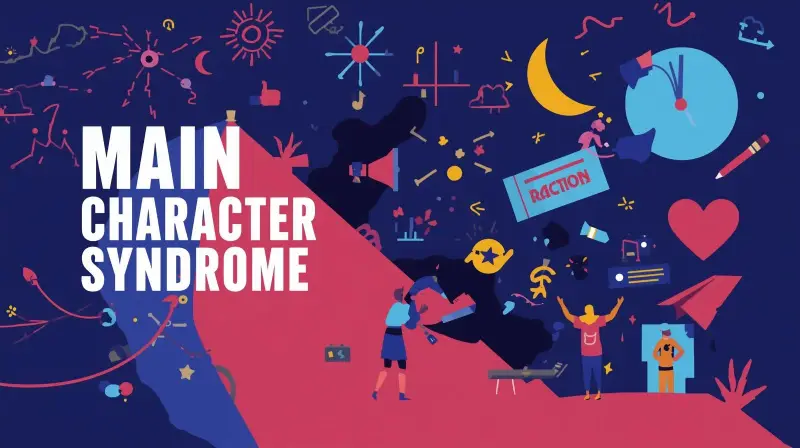Infidelity is a topic that stirs deep emotions and complex reactions in almost everyone who encounters it, either personally or through the experiences of others. It is a betrayal that can shatter trust, cause intense pain, and lead to the dissolution of relationships. Yet, despite the profound consequences, infidelity remains a pervasive issue in romantic relationships across cultures and societies. To understand why infidelity occurs, it is essential to explore the psychological factors that drive individuals to stray from their committed partners.
This article delves into the psychology of infidelity, examining the underlying motivations, the emotional and psychological impact on those involved, and the broader implications for relationships. By understanding these aspects, we can gain insight into the complexities of human behavior and the factors that influence fidelity and betrayal.
What Is Infidelity?

Infidelity, also known as cheating or adultery, occurs when a person in a committed relationship engages in emotional or physical intimacy with someone other than their partner. Infidelity can take many forms, ranging from one-night stands and long-term affairs to emotional infidelity, where the primary bond is not sexual but emotional. The definition of infidelity varies from person to person and culture to culture, but it generally involves a breach of trust and a violation of the expectations of exclusivity in a relationship.
The Prevalence of Infidelity

Infidelity is more common than many people might think. Studies suggest that between 20% to 25% of married individuals in the United States have engaged in extramarital sex at some point in their lives. When emotional infidelity and non-sexual forms of betrayal are included, these numbers rise even higher. The prevalence of infidelity is not limited to any gender, age group, or cultural background. It can happen in any relationship, regardless of how strong or committed it may seem on the surface.
The Motivations Behind Infidelity

The reasons why people cheat is varied and complex. While some may assume that infidelity is driven purely by sexual desire, the reality is far more nuanced. Here are some common psychological motivations behind infidelity:
Unmet Emotional Needs
Emotional Disconnect: One of the most significant drivers of infidelity is unmet emotional needs within a relationship. When individuals feel emotionally neglected or unappreciated by their partner, they may seek emotional connection and validation elsewhere. This can lead to emotional infidelity, where the primary bond with the outside person is based on emotional intimacy rather than physical attraction.
Lack of Communication: Poor communication is often at the root of unmet emotional needs. When partners do not openly discuss their feelings, desires, and concerns, misunderstandings and resentment can build up, creating a fertile ground for infidelity.
Sexual Dissatisfaction
Desire for Novelty: Sexual dissatisfaction is another common reason for infidelity. Some individuals may feel that their sexual needs are not being met within their relationship, leading them to seek satisfaction elsewhere. This can be driven by a desire for novelty, excitement, or simply more frequent sexual encounters.
Sexual Compatibility: In some cases, partners may have mismatched sexual desires or preferences, leading to frustration and dissatisfaction. If these issues are not addressed, one partner may use infidelity to fulfill their sexual needs.
Boredom and Desire for Excitement
Routine and Monotony: Long-term relationships can sometimes become monotonous, with routines and predictability replacing the excitement and passion of the early days. For some individuals, this boredom can lead to a desire for new experiences and excitement, which they may seek outside of their relationship.
Thrill-Seeking Behavior: Some people are naturally inclined toward thrill-seeking behavior, and the risk and secrecy associated with infidelity can provide a rush of adrenaline that they find addictive. This thrill-seeking can become a primary motivator for cheating, even when the individual is otherwise satisfied with their relationship.
Low Self-Esteem
Need for Validation: Individuals with low self-esteem may cheat to boost their self-worth. The attention and affection they receive from someone outside their relationship can provide a temporary sense of validation and confidence.
Fear of Rejection: Low self-esteem can also lead to a fear of rejection or abandonment. In an attempt to protect themselves from being hurt, some individuals may engage in infidelity to keep their options open or as a preemptive strike against potential rejection by their partner.
Opportunity
Lack of Boundaries: Sometimes, infidelity occurs simply because the opportunity presents itself, and the individual lacks the boundaries or self-control to resist. This is often the case in situations where there is easy access to potential partners, such as in the workplace or social settings.
Situational Factors: Alcohol, travel, and other situational factors can lower inhibitions and increase the likelihood of infidelity. In these cases, the decision to cheat may be more impulsive than premeditated.
Revenge or Retaliation
Hurt and Anger: Infidelity can also be a form of revenge or retaliation. If an individual feels wronged or betrayed by their partner, they may cheat to hurt them in return or to regain a sense of power and control.
Emotional Payback: In some cases, infidelity is used to balance the emotional scales, especially if one partner feels that the other has been unfaithful or neglectful.
Fear of Commitment
Avoiding Intimacy: Some individuals have a fear of commitment or intimacy, which can lead them to sabotage their relationship through infidelity. By cheating, they create a barrier between themselves and their partner, which prevents deeper emotional connection and vulnerability.
Desire for Independence: For others, infidelity is a way to maintain a sense of independence and autonomy. They may feel trapped or suffocated in their relationship and use cheating to assert their freedom.
The Emotional and Psychological Impact of Infidelity

Infidelity can have devastating emotional and psychological effects on both the betrayed partner and the individual who engages in the affair. These effects can vary depending on the nature of the infidelity, the duration of the affair, and the emotional investment of the individuals involved.
Impact on the Betrayed Partner
Feelings of Betrayal and Loss of Trust: The most immediate and overwhelming emotion experienced by the betrayed partner is a sense of betrayal. Trust, which is the foundation of any relationship, is shattered, and the partner may feel a profound sense of loss and disillusionment.
Emotional Trauma: Infidelity can lead to significant emotional trauma, similar to the effects of a traumatic event. The betrayed partner may experience symptoms of depression, anxiety, and post-traumatic stress disorder (PTSD). They may also struggle with self-esteem issues, feeling inadequate or unworthy.
Anger and Resentment: Anger is a common response to infidelity. The betrayed partner may feel intense rage towards the unfaithful partner and the person with whom they had the affair. This anger can be difficult to manage and may lead to further conflict and resentment.
Grief and Loss: Infidelity often triggers a grieving process, as the betrayed partner mourns the loss of the relationship they thought they had. They may grieve the loss of trust, intimacy, and the future they envisioned with their partner.
Impact on the Unfaithful Partner
Guilt and Shame: The unfaithful partner may experience feelings of guilt and shame, especially if they regret their actions and recognize the pain they have caused. These emotions can be difficult to cope with and may lead to self-destructive behaviors.
Cognitive Dissonance: Infidelity can create cognitive dissonance, where the unfaithful partner struggles to reconcile their actions with their values and self-image. This internal conflict can lead to confusion, anxiety, and a sense of inner turmoil.
Fear of Consequences: The unfaithful partner may fear the consequences of their actions, such as the end of the relationship, loss of reputation, or damage to their family. This fear can create significant stress and anxiety.
Justification and Rationalization: In an attempt to alleviate their guilt, the unfaithful partner may engage in justification and rationalization of their actions. They may downplay the significance of the infidelity, blame their partner, or convince themselves that they had valid reasons for cheating.
Impact on the Relationship
Breakdown of Communication: Infidelity often leads to a breakdown in communication between partners. Trust is eroded, and open, honest dialogue becomes difficult. Partners may avoid discussing the affair, leading to unresolved issues and lingering resentment.
Struggle to Rebuild Trust: Rebuilding trust after infidelity is a challenging and lengthy process. It requires both partners to be committed to healing the relationship, which may involve counseling, open communication, and a willingness to forgive.
Shift in Power Dynamics: Infidelity can alter the power dynamics in a relationship. The betrayed partner may feel a loss of power and control, while the unfaithful partner may feel guilty and submissive. These shifts can create further tension and conflict.
Potential for Growth or Dissolution: In some cases, infidelity can lead to the dissolution of the relationship, as the pain and betrayal are too much to overcome. However, for some couples, working through the aftermath of infidelity can lead to personal growth and a stronger, more resilient relationship.
Coping with Infidelity: Healing and Moving Forward

Dealing with the aftermath of infidelity is one of the most challenging experiences in a relationship. Whether the decision is to stay together or part ways, healing and moving forward require time, effort, and a willingness to confront difficult emotions. Infidelity often triggers a grieving process, as the betrayed partner mourns the loss of trust and the relationship, they thought they had. It’s essential to allow yourself to feel and process these emotions, whether they include sadness, anger, confusion, or betrayal. Surrounding yourself with a supportive network of friends, family, or a therapist can provide a safe space to express your feelings and gain perspective. Professional counseling can also help you navigate the complex emotions and decisions that arise after infidelity.
Preventing Infidelity: Building a Stronger Relationship

While it’s impossible to eliminate the risk of infidelity, couples can strengthen their relationship and reduce the likelihood of cheating.
Prioritize Communication
Regular Check-Ins: Make it a habit to regularly check in with your partner about your feelings, needs, and concerns. Open and honest communication can help prevent misunderstandings and address issues before they escalate.
Express Appreciation: Regularly expressing appreciation and gratitude for your partner can help maintain a positive and supportive relationship. Acknowledging the small things can make a big difference in how connected and valued both partners feel.
Nurture Emotional Intimacy
Spend Quality Time Together: Prioritize spending quality time together to strengthen your emotional bond. This could include date nights, shared hobbies, or simply spending time talking and enjoying each other’s company.
Be Vulnerable: Emotional intimacy requires vulnerability. Be open with your partner about your fears, insecurities, and desires. This level of openness can deepen your connection and build trust.
Address Sexual Issues
Open Dialogue About Sex: Sexual dissatisfaction is a common driver of infidelity. Have open and honest conversations about your sexual needs and desires, and be willing to work together to find solutions.
Seek Help If Needed: If sexual issues persist, consider seeking help from a sex therapist or counselor. Addressing these issues early on can prevent them from becoming a source of resentment or dissatisfaction.
Foster Mutual Respect and Trust
Respect Boundaries: Respecting each other’s boundaries is crucial for maintaining trust in a relationship. Be mindful of what makes your partner uncomfortable and avoid crossing those lines.
Build Trust Through Actions: Trust is built through consistent, reliable behavior. Be honest, keep your promises, and show your partner that they can count on you.
Stay Connected
Maintain a Strong Friendship: A strong friendship is the foundation of a healthy relationship. Nurture this aspect of your relationship by being supportive, encouraging, and understanding.
Keep the Spark Alive: Relationships naturally evolve over time, but it’s essential to keep the spark alive. Continue to flirt, surprise each other, and keep the romance alive to maintain a sense of excitement and connection.
Conclusion
Infidelity is a complex and multifaceted issue that can have profound emotional and psychological effects on individuals and relationships. While the motivations behind infidelity vary, common themes include unmet emotional needs, sexual dissatisfaction, boredom, and low self-esteem. Understanding the psychology of infidelity can help individuals and couples navigate the challenges that arise from betrayal and work towards healing and growth.
Preventing infidelity requires a proactive approach, focusing on open communication, emotional intimacy, mutual respect, and trust. By addressing issues early on and maintaining a strong connection, couples can build a resilient and fulfilling relationship that withstands the challenges of life.




